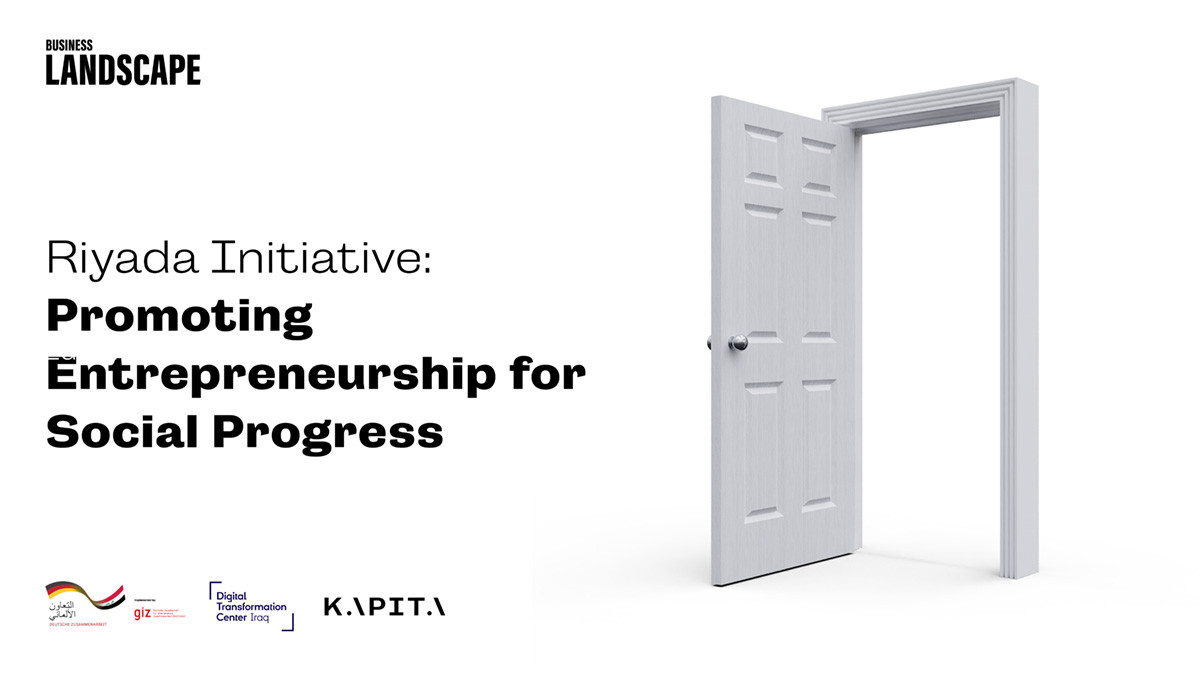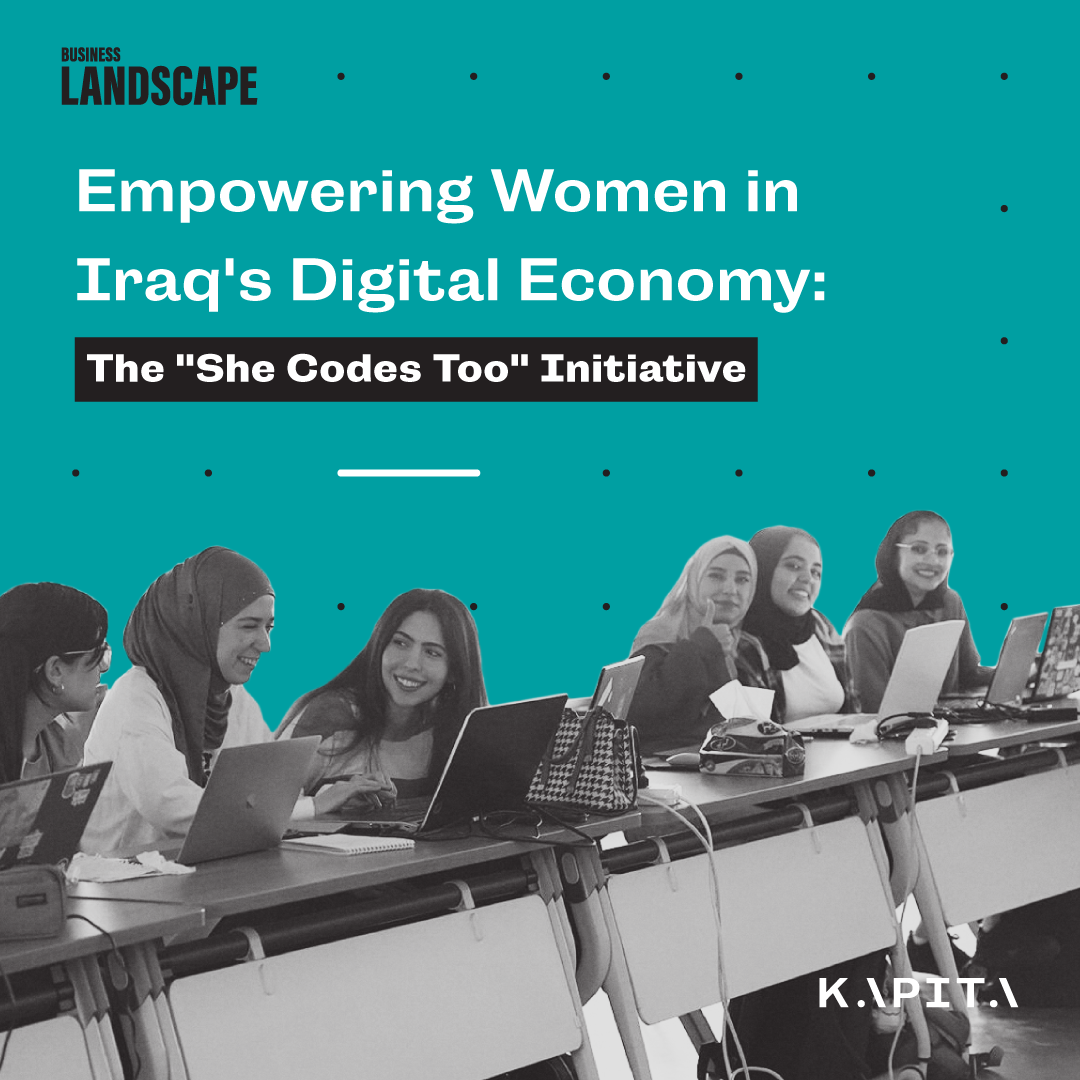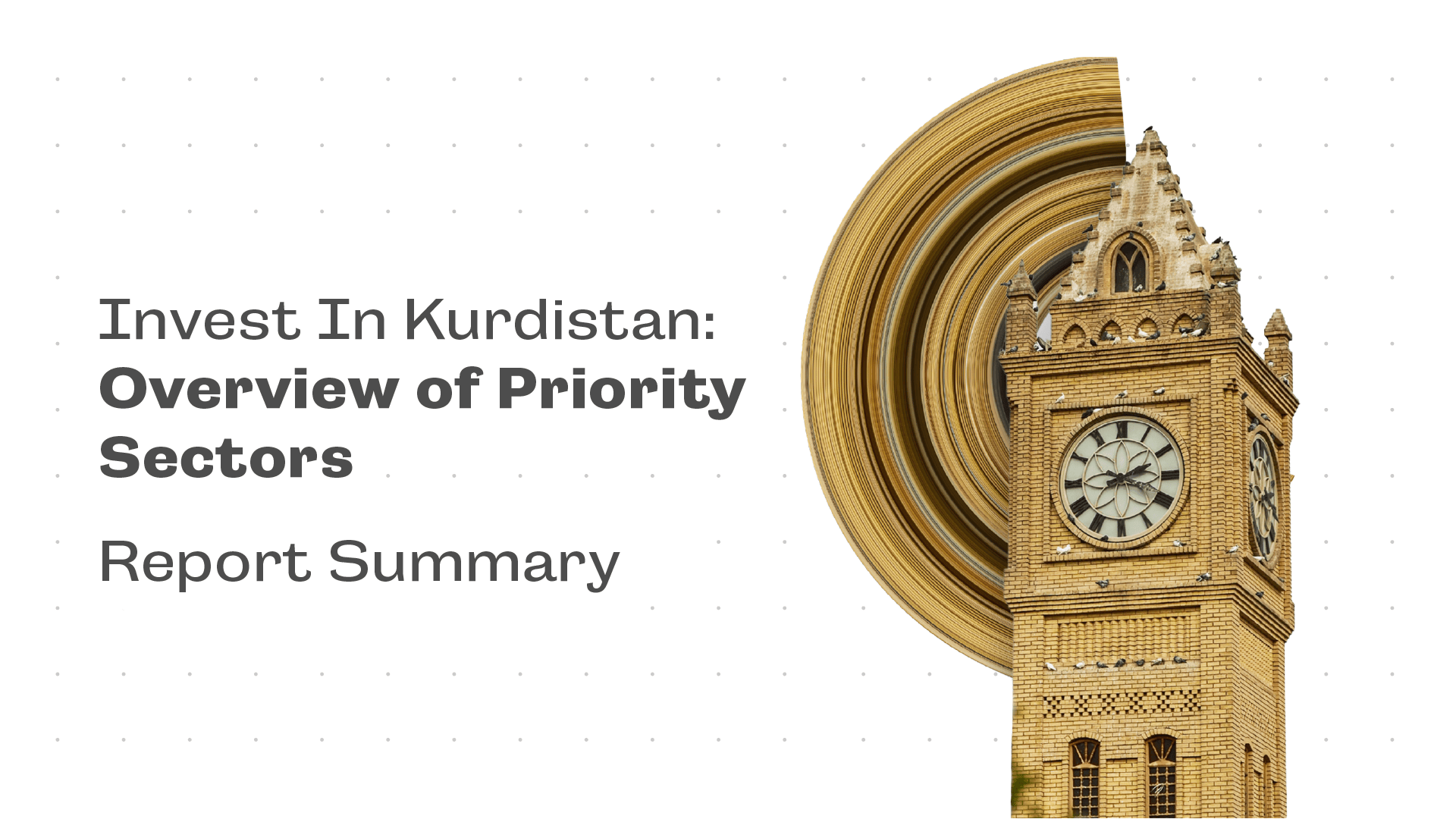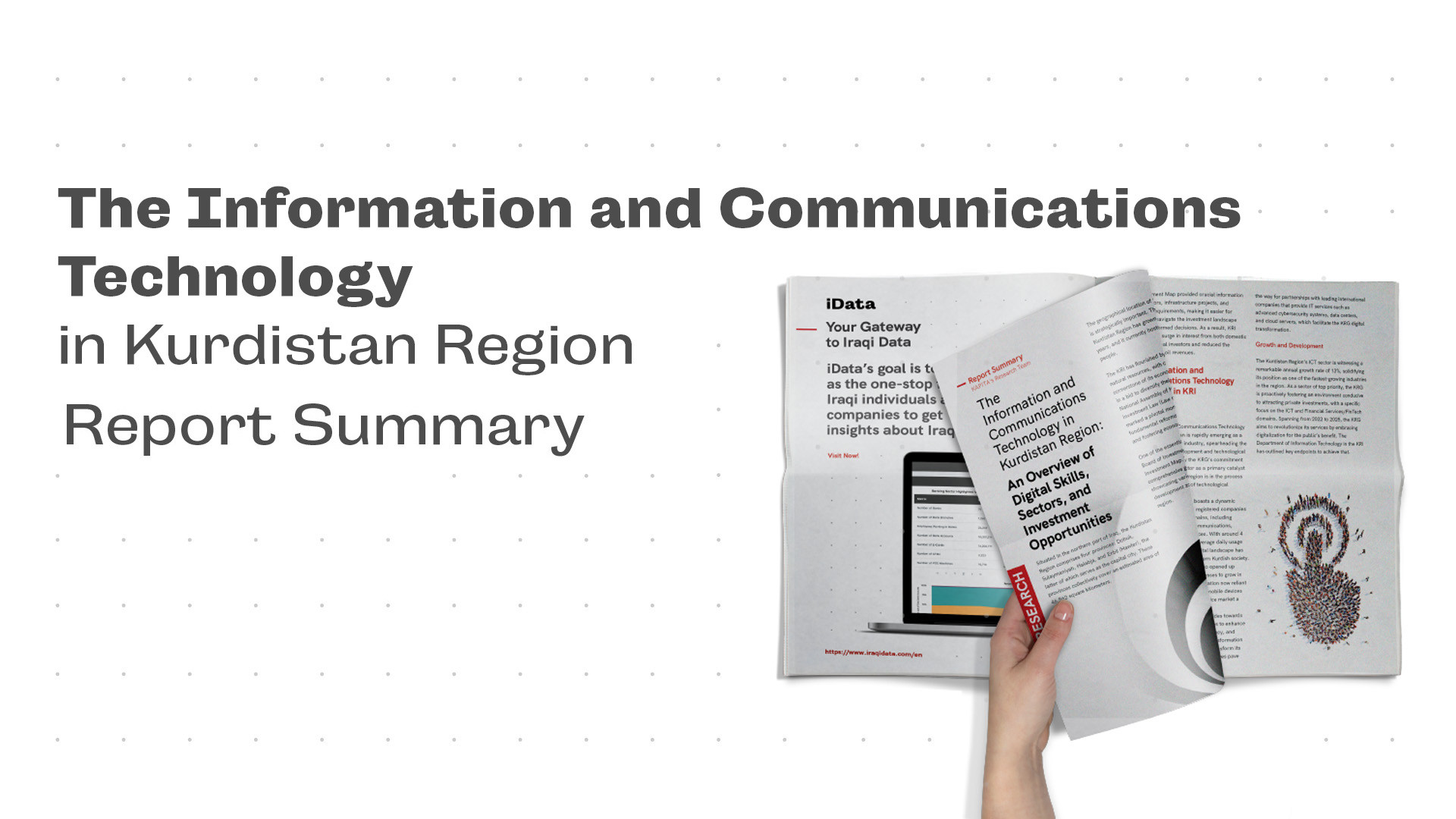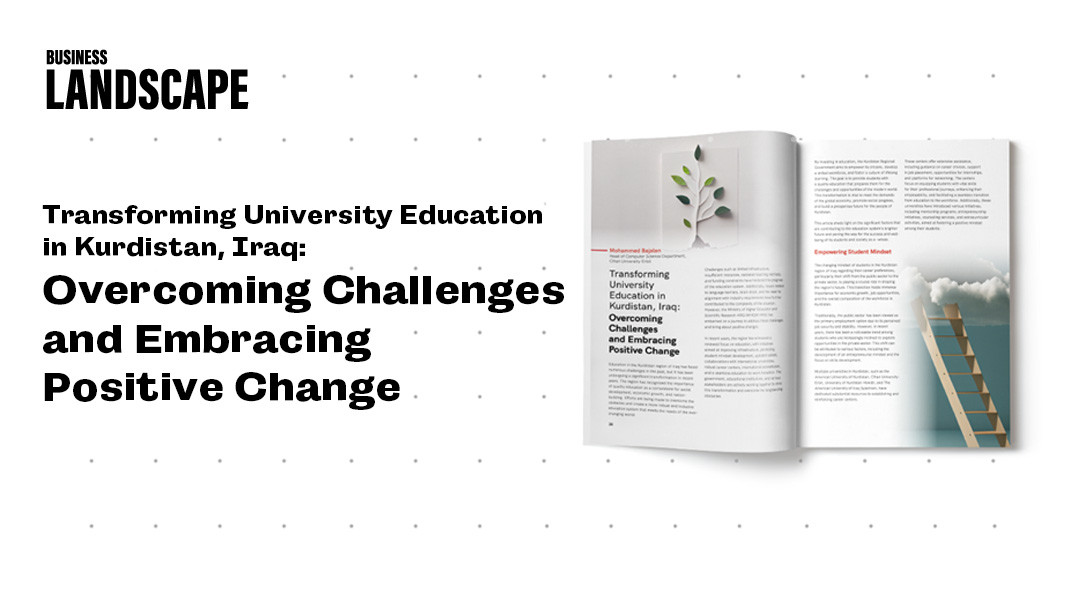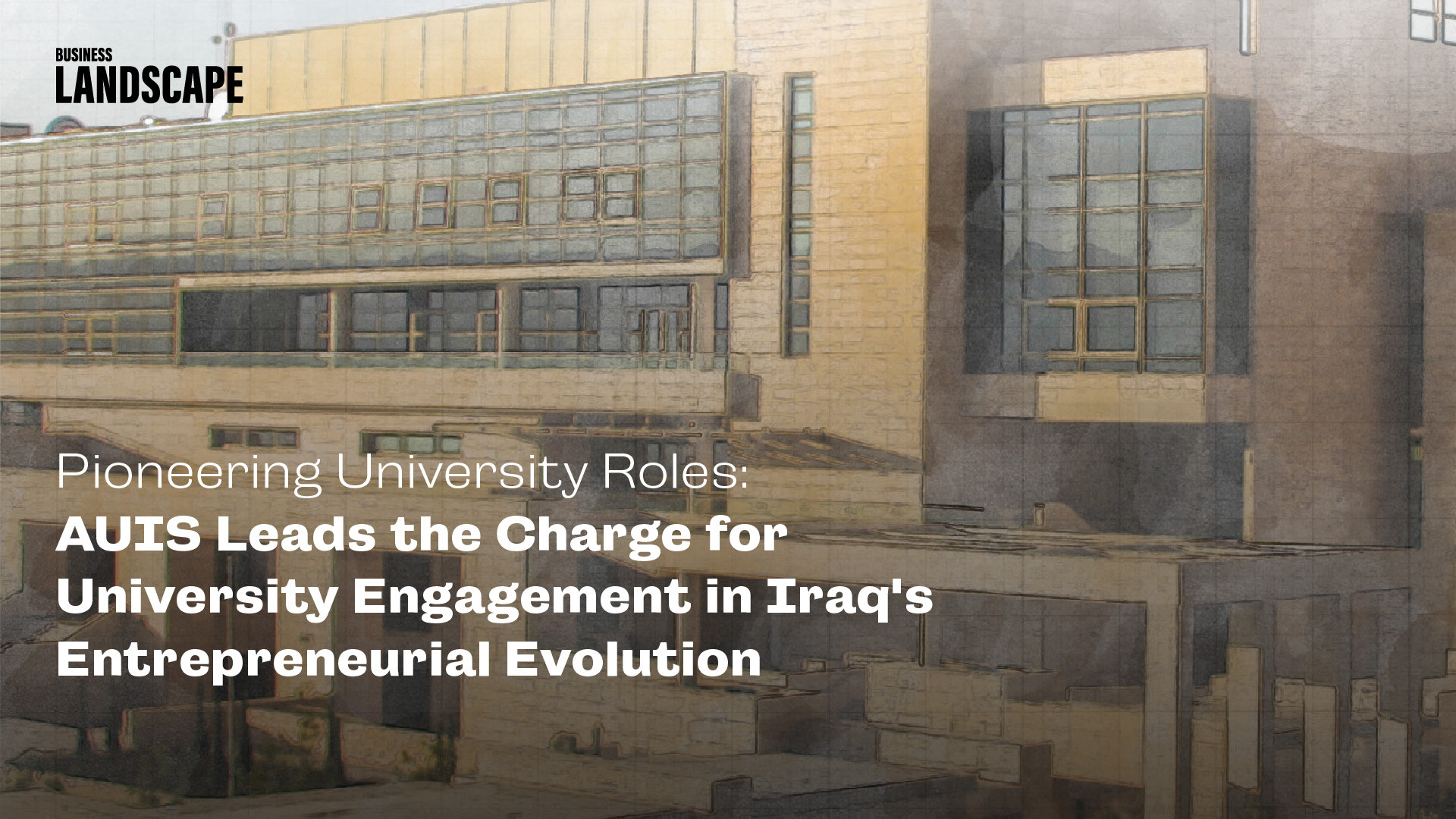Riyada Initiative: Promoting Entrepreneurship for Social Progress
Zaid Habeeb
Research Analyst, KAPITA Business Hub
A good indicator of social progress and growth in development policies, plans, programs, and communities is how much role entrepreneurship plays in the economic scene of a country. Years of political instability and conflicts have created a discouraging environment for the most important economic drive, small and medium-sized businesses, to grow, leaving the economy hostage to unstable oil revenues and undermining the role of the private sector.
An economy driven by entrepreneurship is an economy led by youth. According to the Central Statistical Organization’s latest figures in 2020, the population aged from 15 to 34 years old reached 13.7 million, making up around 34% of the total population. With youth being the dominant age group, there is an urgent need to advance the reality of entrepreneurship in Iraq.
The current government is aware of the need to activate the private sector and of the large number of people entering the labor market, including university graduates, seeking job opportunities in both the private and public sectors. In an effort to reduce the demand for public employment, the government founded Riyada Initiative, aiming to spread nationwide awareness of entrepreneurship, accommodate youth, and develop and transform their ideas into sustainable businesses. The initiative serves to bridge the gap between youth and the private sector through incubation and funding programs for promising business ideas.
On March 2023, Prime Minister Mohammad Shia'a Al-Sudani, officially launched the Riyada Initiative in collaboration with several ministries, including the Ministry of Education, the Ministry of Higher Education and Scientific Research, the Ministry of Labor and Social Affairs, the Ministry of Youth and Sports, and potentially the Ministry of Finance. The amount of funds allocated for the Small Projects Lending Fund has reached up to IQD 500 billion from the 2023 federal budget.
The State of Entrepreneurship in Iraq
Over the years, the entrepreneurial ecosystem has witnessed dramatic changes. Numerous international and local players have been actively participating in improving the reality of the Iraqi private sector. The emergence of ecosystem enablers has led to a promising culture of entrepreneurship, focusing on pre-incubation and incubation programs, acceleration programs, training centers, and co-working spaces. With the aim of transforming ideas into sustainable businesses, the Iraq ecosystem has witnessed a considerable rise in the number of startups, driving more investment and interest into the scene. As a result, the Riyada Initiative has gained remarkable popularity among Iraqi youth as the number of applicants reached 80,167 students, 39,581 graduates, and 62,897 job seekers as of July 2023, according to the Media Office of the Iraqi Prime Minister.
Exploring the Offerings of the Riyada Initiative
Statistically speaking, the public sector is a significant contributor to employment in Iraq. A former government official stated that around 4 million employees and 2.5 million retirees are receiving direct or indirect payments from the government. The dependency on the public sector payroll places a heavy load on the federal budget as payments and pensions exceeded 100% of oil revenues in 2021. In addition, as the number of graduates and the pool of the workforce increase every year, the government is encouraged to seek other alternatives to accommodate this pressure and redirect it properly. It is crucial to activate the private sector in order to diversify the economy and create job opportunities because the unemployment rate among Iraqis has been constantly increasing, from 8% in 2012 to 15.5% in 2022, according to the World Bank.
Inspired by the 2004 “See the Opportunities and Make Them Work” Norwegian Strategic Plan for Entrepreneurship in Education, the initiative aims toward creating an entrepreneurial society through 4 important axes: studying youth ideas; ensuring the effectiveness of these ideas and the possibility of improvement; creating a state of competition in the local market; offering opportunities for production and services.
The Phases of Riyada Initiative
The process followed throughout this initiative is divided into 5 phases, starting with signing up for the Riyada application, training, auditing, financing, and follow-up.
Riyada Application
The initiative comes with a dedicated application featuring several services as soon as participants are logged in. The application offers a wide range of benefits, including lecture enrollment, access to the available project support programs, course material download option, participation in online courses, and a certificate of completion when succeeding. Trainees can also map business incubator locations across the country, and most importantly, it is the opportunity for trainees to directly communicate with trainers through text-based channels and track their project progress.
Harnessing Educational Resources & Training
This phase takes place in different designated centers across the country. A team of 1000 training leaders is dedicated to 100 thousand trainees in the first year of launching. The targeted age group is university and vocational students, graduates, and job seekers aged from 16 to 50 years old.
The total number of training centers utilized by the Iraqi government is 169, and they are as follows: 34 Vocational Training Centers, 15 Incubators, 45 Technical High Schools (out of 334), and 75 Career Development Centers (out of 383). In addition, The government plans for expansion in the following year by reaching 166,000 trainees. In terms of training materials, they mainly focus on business plan development.
Riyada's Trainees’ Journey Forward
When the training ends, trainees get to the auditing phase, where they fill out a form and electronically send it to a bank of their choice. This form permits trainees and incubators to sign a contract for one year of supervision, advice, and guidance. On July 8th this year, the Council of Ministers issued the decisions and the conditions regarding granting loans to trainees of the Riyada Initiative and approved the establishment of loans (up to IQD 2 million with 7 years repayment period) by Al-Rafidain and Al-Rasheed banks to young individuals who have completed the training program and wish to establish small and micro projects.
Riyada application offers graduates of this initiative to self-follow for over 10 years, where they can check their business progress through their financial records, videos, and pictures they upload to their accounts.
Immediate and Strategic Objectives
With the establishment of this initiative, aiming to empower young people in the business landscape, the government seeks to realize certain goals. The final outcome is to create a sustainable and diverse economy that hinges on a dynamic ecosystem of entrepreneurs and small businesses rather than on oil resources. To get there, the initiative has to reach some milestones along the way, which in essence are the government’s objectives. With Riyada, the government is on a mission to attain short-term goals as it will turn the centers/incubators into solution-offering hubs that address the entrepreneurial ecosystem's challenges and leverage promising economic opportunities in terms of innovative business ideas and youth eagerness toward entrepreneurship. Additionally, these hubs will serve as training camps, enabling young people to gain the necessary skills and knowledge required to build and manage their businesses in the marketplace.
As for strategic objectives, the result is to create more job opportunities for youth across the country and to significantly play a role in developing the private sector, which by extension encourages more investment and focus on our natural resources, human capital, and capacity building.
Spreading Awareness
Many voices have been effectively calling to raise social awareness among Iraqi youth on the importance of entrepreneurship. However, Riyada is significantly different in this matter as it has a greater community outreach and funding, extending across universities and beyond. The official endorsement has shed light on the entrepreneurial scene that may or may not be known by a great deal of Iraqis. The general public has now a better understanding of this concept and the value it holds within the private sector context. This awareness socially manifests itself in different ways, and they are as follows:
Getting the ABCs of Business
Getting into entrepreneurship defies the traditional approach of building businesses. It encourages youth to gain insights into professional standards of business practices, such as ethical conduct, risk management, financial management, and innovation and research, to name a few. Getting a grasp of these standards can definitely give an edge over non-standard followers and increase the success rate in a dynamic market like the one we have in Iraq.
Business Digital Transformation
The initiative utilizes an application to communicate with trainees, paving the way for more people to catch up with the digital transformation of the market. The fact that trainees need to sign in, fill out an application form, and track their progress indicates the conclusion of classic methods of government-people communication and signals the incorporation of more technology. Additionally, it emphasizes the fact that the incorporation of technologies, in any way, shape, or form, into business formation is key and needs to be encouraged.
Business Development Hubs
This initiative has expanded Iraqi youth’s horizons to new possibilities by introducing them to these business development centers. This helps increase social awareness and build perspective about the purpose of these centers. Those willing to transform an idea into a successful startup yet lack the necessary skills and knowledge have an opportunity to sign in to one of these hubs - not necessarily related to this initiative. There are numerous enablers in the Iraqi ecosystem that offer fundamentals on how to initiate and scale a startup, in addition to acquiring a wide range of skills that can be beneficial for entrepreneurs. The knowledge that many entrepreneurship support organizations and initiatives can incubate and finance an idea is another level of social awareness amplified by the Riyada Initiative.
Elevate Funding Knowledge
Many Iraqi entrepreneurs have an idea, yet they lack funding. Riyada Initiative offers a practical opportunity for young entrepreneurs to gain hands-on experience in funding procedures. Trainees undergo several technical and legal phases with business incubators and banks in an attempt to successfully secure funding for their business projects. Regardless of the final outcome, what holds importance is the exposure to an eye-opening experience in the realm of entrepreneurship, particularly financing.
Youth represent a significant part of the Iraqi population, and their role is essential to social progress. One way to achieve that is through the promotion of entrepreneurship. Many players have been advocating for a greater role of entrepreneurs and SMEs in a sustainable economy, with Riyada Initiative being a recent example of that. Initiated by the government, Riyada aims to attract Iraqi youth into the entrepreneurial scene by providing them with training and funding, enabling them to establish their businesses and contribute to the economy as a result. The initiative also serves to spread awareness among Iraqis on the importance of entrepreneurship, the incorporation of technologies in business creation and scale, the expansion of knowledge on funding and training centers across the country, and finally, the adoption of professional standards of doing business.
